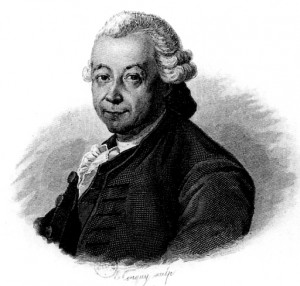 Countries worked very hard to prevent spices from leaving the native islands they controlled. The Molucca Islands in Indonesia were a particular example, being the only place in the world which grew mace, nutmeg & cloves. Frank Czarra (Spices:A Global History, 2009) talks about the Dutch covering their nutmeg crop with lime to prevent reseeding & setting clove groves on fire to avoid new plants being grown.
Countries worked very hard to prevent spices from leaving the native islands they controlled. The Molucca Islands in Indonesia were a particular example, being the only place in the world which grew mace, nutmeg & cloves. Frank Czarra (Spices:A Global History, 2009) talks about the Dutch covering their nutmeg crop with lime to prevent reseeding & setting clove groves on fire to avoid new plants being grown.
However in the late 18th century, the brilliantly named Pierre Poivre (Peter Pepper) finally succeeded in stealing vital seeds from under the Dutch’s noses. Poivre had spent time travelling the world as a French missionary and was instrumental in his nation winning the vital port of Pondicherry in India. More significantly to this tale, he was also keen botanist.
Poivre had attempted unsuccessfully to grow nutmeg & cloves on French soil, but while being stationed as political official in Mauritius, he developed a tropical garden & then returned to the Moluccas on a successful seed smuggling mission. Within thirty years, the French were successfully growing cloves in Madagascar, Zanzibar & Pemba, followed by the British in the Carribbean & the Portuguese in Brazil.
Poivre eventually returned to his native Lyon & died in 1786. However, his legacy lives on through the Botanical gardens of Pamplemousse in Mauritius (inspired by a local grapefruit tree) where he first grew his cloves, the island Poivre Atoll, which was dedicated to him in the Seychelles & his book ‘Voyages of a Philosopher’, which was read with interest by Thomas Jefferson. Many people believe he was also the inspiration for the wonderful old British tongue-twister….
Peter Piper picked a peck of pickled peppers.
A peck of pickled peppers Peter Piper picked.
If Peter Piper picked a peck of pickled peppers,
Where’s the peck of pickled peppers that Peter Piper picked?
